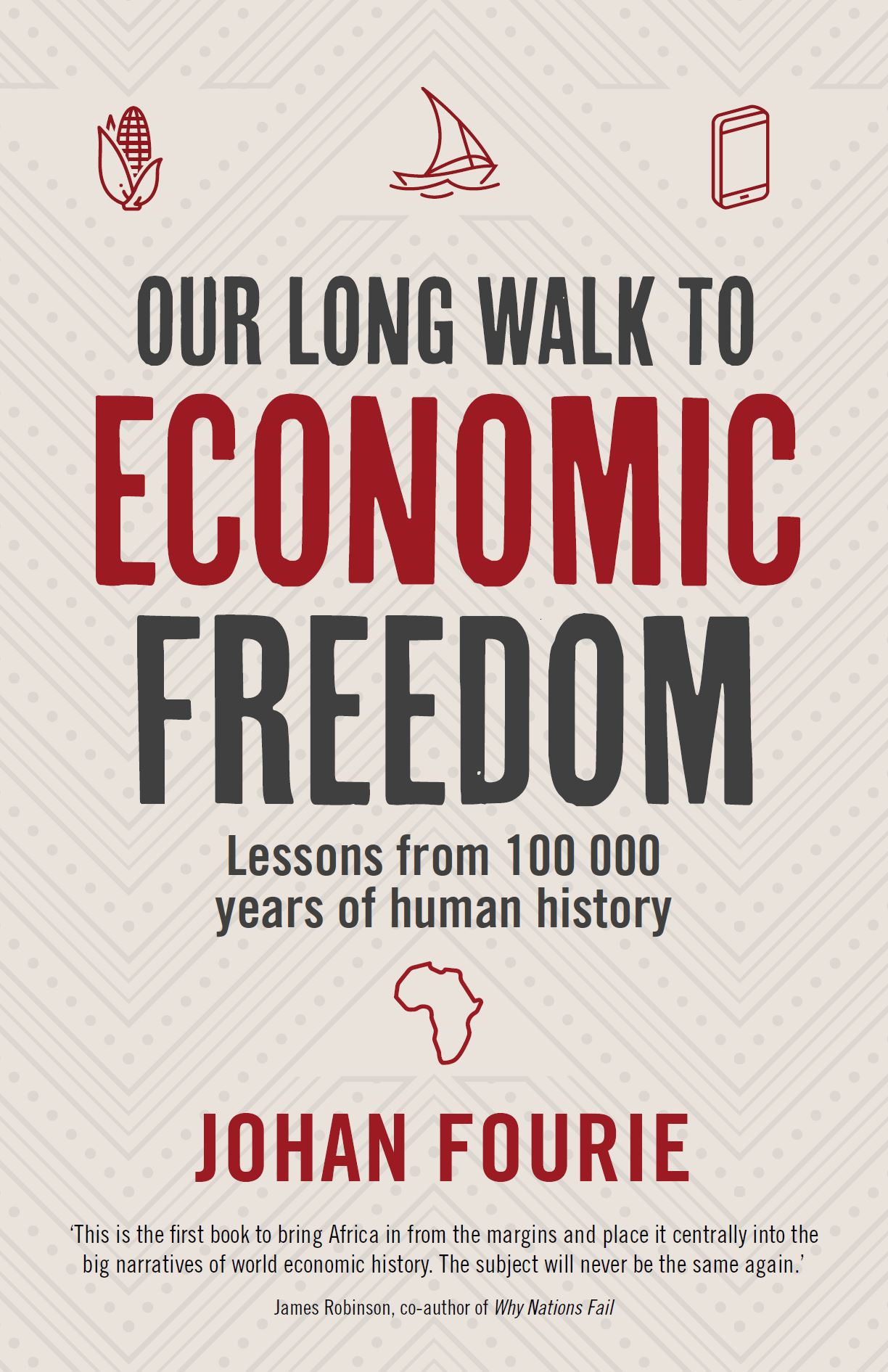How did Einstein help create Eskom? Why can an Indonesian volcano explain the Great Trek? What do the late King Zwelithini and Charlemagne have in common?
These are just some of the interesting questions Prof Johan Fourie from the Department of Economics at Stellenbosch University explores in a new book published recently.
Entitled Our Long Walk to Economic Freedom, the book, which has been written from a South African perspective, is an accessible global economic history spanning everything from the human migration out of Africa 100,000 years ago to the Covid-19 pandemic.
Through short and easy-to-read (and sometimes even entertaining) stories about historical events and trends, Fourie tries to answer one of the main questions in economics, namely why some countries are rich and others slow to catch up.
He says the book also discusses new scholarship that is starting to pay more attention to Africa's economic history.
“Africa's economic history is always at the margins of global economic history. That is for two reasons: many consider Africa to have always been poor and, as such, not worth studying. That is just bad history.
Another reason is that in many cases, historians of Africa have been forced to use sources and methods that economists find difficult to work with. They have thus largely ignored those sources. More recently, this is changing, and it is resulting in a much more fertile field of study."
Fourie points out that several chapters of Our Long Walk to Economic Freedom deal with South African history – and the lessons we should learn about what gave rise to (or prevented) a better life for all.
“Of course we should not only learn from our own history, but perhaps these lessons also help to understand where we are as a country – and might even give us some roadmap about where we should be heading."
“I think humanity has come to the following two revelations: that we can use our knowledge of nature to produce more and better things, and that, secondly, these things that we produce should not be limited to an elite," adds Fourie.
He says that we are profoundly more productive than we were only a century earlier and far more people than ever before are benefiting from this productivity.
“Yes, not everyone is doing so equally, and yes, we have to be concerned about how our actions affect the natural environment, but the fact that we live longer, more healthier lives with higher incomes also allow us to invest in those things that we value, including the environment."
Fourie emphasises that we still have some way to go before we attain economic freedom.
“As long as there are still people that are unable to escape structural poverty, that are unable to find the job they want, unable to obtain the education their ability allows, and unable to live the life they want to lead, we have not yet reached the end. We are certainly making progress, but we are not there yet."
According to Fourie, Our Long Walk to Economic Freedom will appeal to a wide audience.
“I've tried to make the academic publishing of economic history journals accessible to as wide an audience as possible. I've also infused the more quantitative evidence with anecdotes from history. I think readers will enjoy the new perspectives on histories they thought they knew."
- Our Long Walk to Economic Freedom is available from bookstores, Takealot, Loot and Amazon Kindle.

